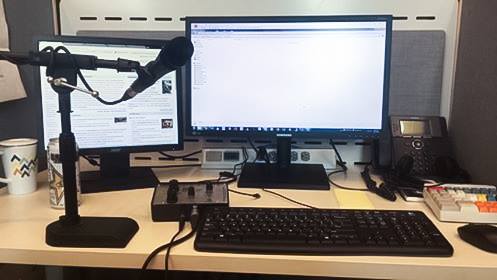Red Bee Media, union-busting and resistance
As you may have already heard, on 11 April 2018, Red Bee Media (A Part of Ericsson) unceremoniously shuttered the Montreal branch of their Access Services division. A more thorough breakdown of the incident will be forthcoming, but suffice it to say that the shuttering was swift and vicious. Rather than negotiate with the representatives of the Montreal Subtitlers Union in good faith, the powers-that-be at Red Bee Media decided that it would be less trouble to axe their entire Canadian division in one fell swoop. This is not an exaggeration: the workers who were in that day went from performing their usual duties to being ushered into a surprise meeting to being removed from the Ericsson campus by security in the span of 20 minutes.
But all hope is not lost. Though our campaign was felled by the twin plagues of corporate greed and union-busting, the Montreal Subtitlers Union lives on. We invite other subtitlers working in Montreal, freelancers and full-timers alike, to band together under our banner to fight for a living wage, fair working conditions, and adequate support for the work that we do. Your fellow workers deserve better. The deaf and hard of hearing community deserve better. And employers deserve to know that we won’t be taken advantage of. The fight continues. Solidarity forever.
Media Contact: Selena, 438-345-5046
Get in touch with the Montreal Subtitlers Union through our facebook page, or email us at [email protected]
The Industrial Workers of the World has many branches around the world, including in Montreal. Its members strive for a union model based on robust working class solidarity called Solidarity Unionism. This model emphasizes direct action at the workplace as exemplified in our campaigns at Ellen’s Stardust Diner in New York City or at So-Frite! in Montreal.


 Subtitlers working for the telecommunications giant
Subtitlers working for the telecommunications giant  The differently abled community of Canada deserves better than subtitles delivered by hungry, tired, and disrespected workers.
The differently abled community of Canada deserves better than subtitles delivered by hungry, tired, and disrespected workers.